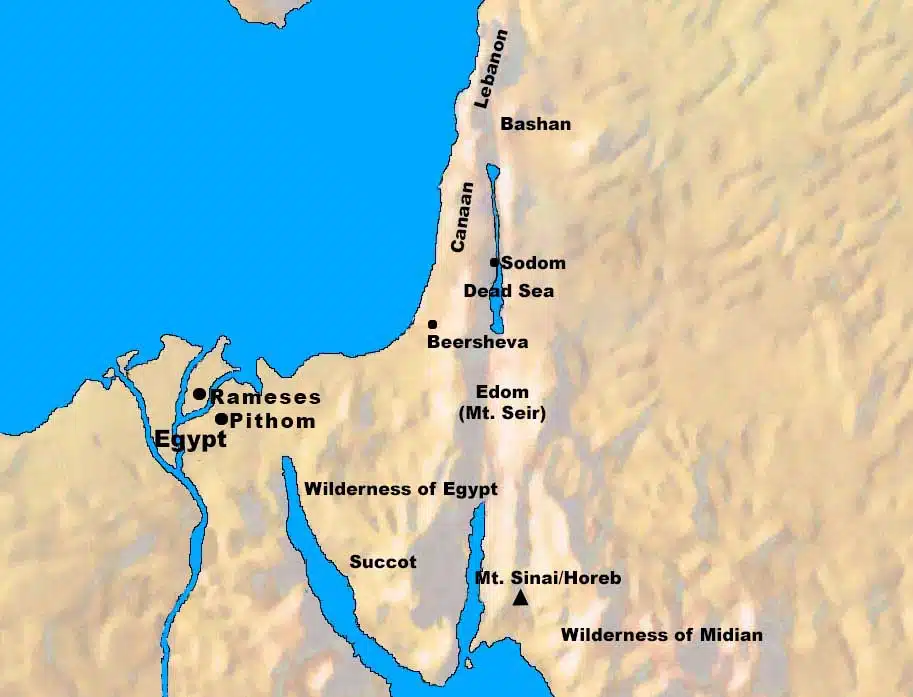The LORD describes another sin offering requiring a ram.
The next sacrifice to be offered was that of one of the rams mentioned in verse 1. Moses was commanded to take the one ram. Remember that the LORD commanded that two rams be part of the ceremony (Exodus 29:1). Again, as with the bull, Aaron and his sons were told to lay their hands on the head of the ram as a visible indication that their sins were transferred to the ram and that it was going to be sacrificed in order to purify them from their sins for the priesthood.
This sacrifice was done as follows:
They were to slaughter the ram. The Hebrew word for slaughter (“shakhat”) is used almost always in reference to ritual sacrifices. They then needed to take its blood and sprinkle it around on the altar. This purifies the altar itself as a place of sacrifice to the LORD.
Next, they needed to cut the ram into its pieces.They were to wash its entrails and its legs. These were the dirtiest parts of the animals and needed cleaning the most. They were then commanded to put them with its pieces and its head.
Finally, they were to offer up in smoke the whole ram on the altar. With this sacrifice, there was to be nothing left at all. The whole sacrificial animal belonged to the LORD.
The last part of verse 18 summarizes the significance of this sacrifice. The LORD said that it is a burnt offering to the Lord. The Hebrew word for burnt offering (“‘ola”) means that the whole animal was to be consumed by fire as opposed to other sacrificial animals being partially consumed. The smoke from this burnt offering went upward and was a soothing aroma, making it a gift to the LORD. In this way, the ram was an offering by fire to the Lord. The Hebrew word “‘ola”could be more literally interpreted as “ascend.” The smoke ascends to God and is pleasing to Him. In this manner, Jesus was an “‘ola”offering. His sacrifice ascended to the Lord, and He Himself ascended to His Father.
Biblical Text:
15 “You shall also take the one ram, and Aaron and his sons shall lay their hands on the head of the ram; 16 and you shall slaughter the ram and shall take its blood and sprinkle it around on the altar. 17 Then you shall cut the ram into its pieces, and wash its entrails and its legs, and put them with its pieces and its head. 18 You shall offer up in smoke the whole ram on the altar; it is a burnt offering to the Lord: it is a soothing aroma, an offering by fire to the Lord.
Check out our other commentaries:
-
Deuteronomy 4:21-24 meaning
Alluding to the incident that prevented him from entering Canaan, Moses asks the Israelites to carefully obey God’s laws in order to avoid making any...... -
Isaiah 49:3-6 meaning
The second Servant Song of Isaiah continues as the LORD’s Servant reveals a dialogue between Himself and the LORD where the Servant seems to lament...... -
Acts 7:35-43 meaning
Moses, who was rejected by his people, returned to Egypt as a deliverer. He performed wonders and signs to show God’s power in Egypt, at...... -
Hebrews 4:14-16 meaning
Our high priest is sympathetic and available to help us persevere in our faith. We can have confidence to approach God because He is for...... -
Matthew 4:2-4 meaning
The devil approaches Jesus with the first of three temptations. He asks Jesus to use His divine powers to turn stones to bread after Christ......



